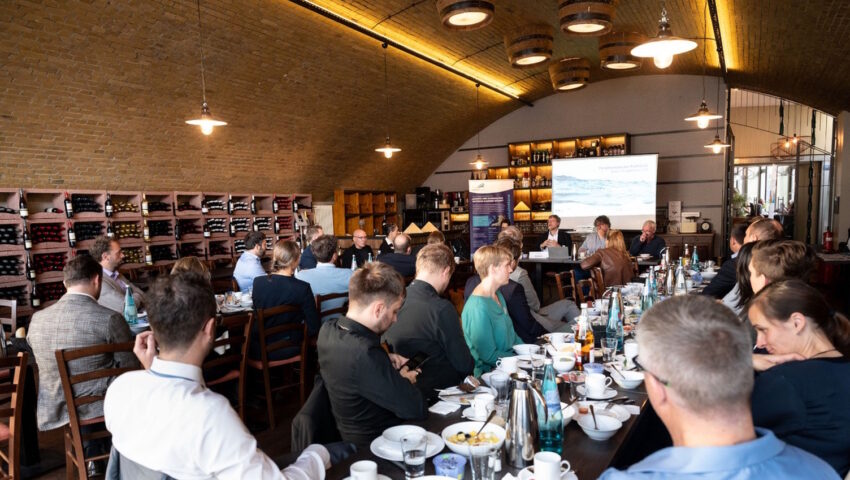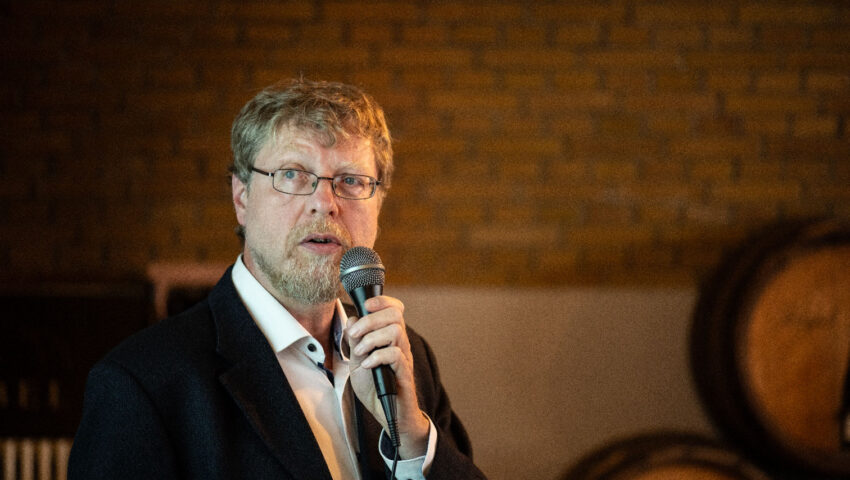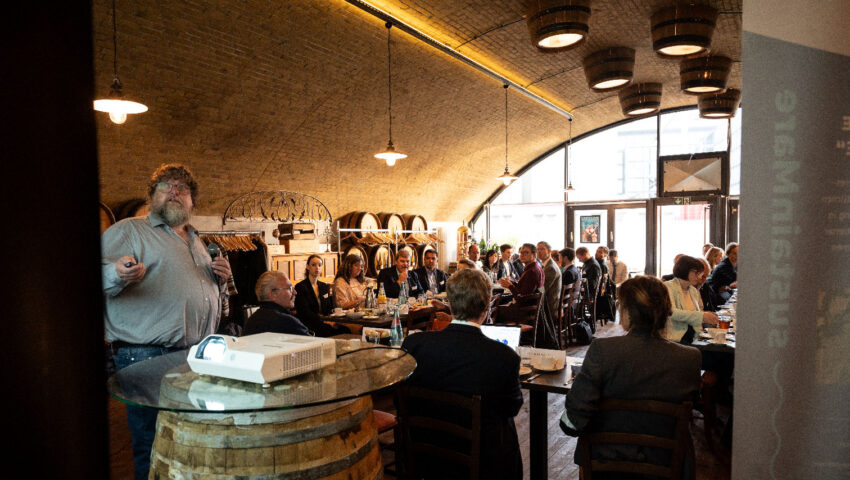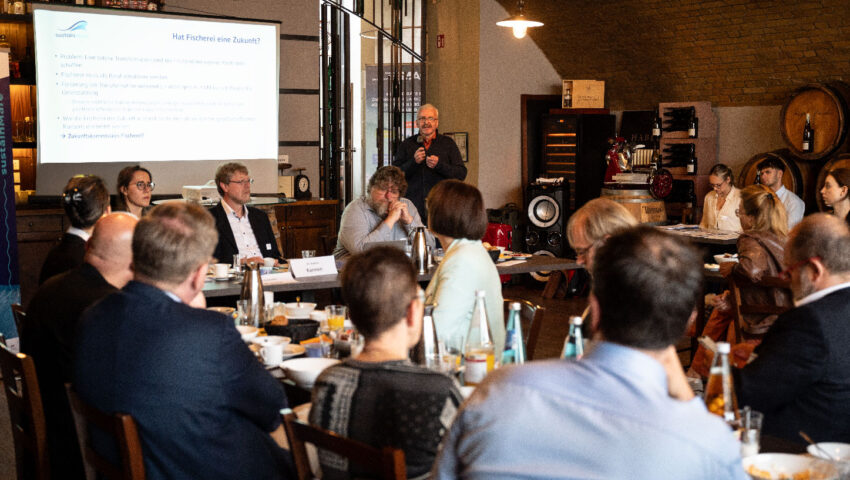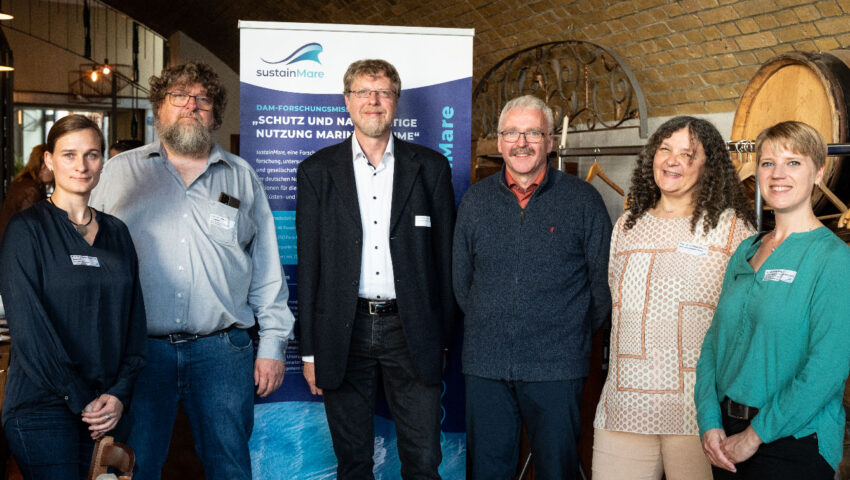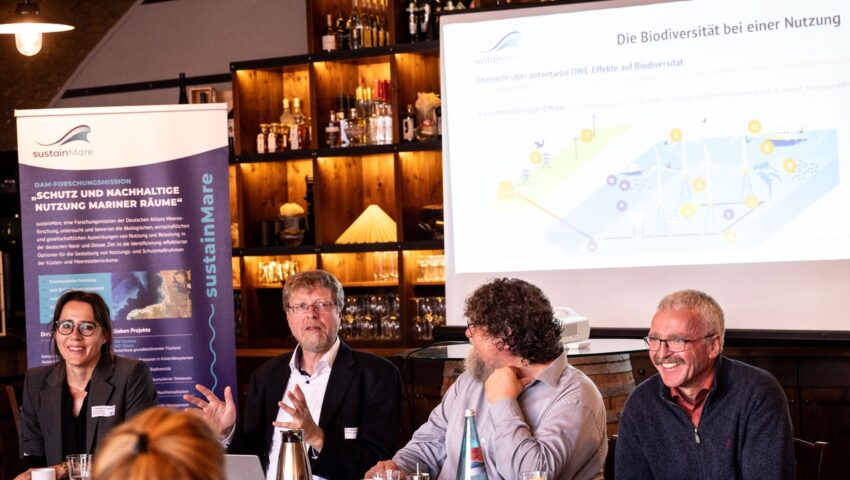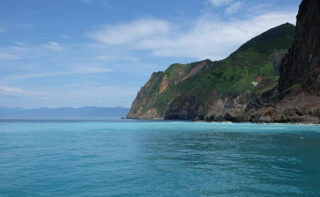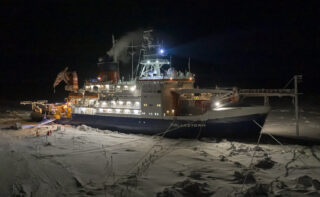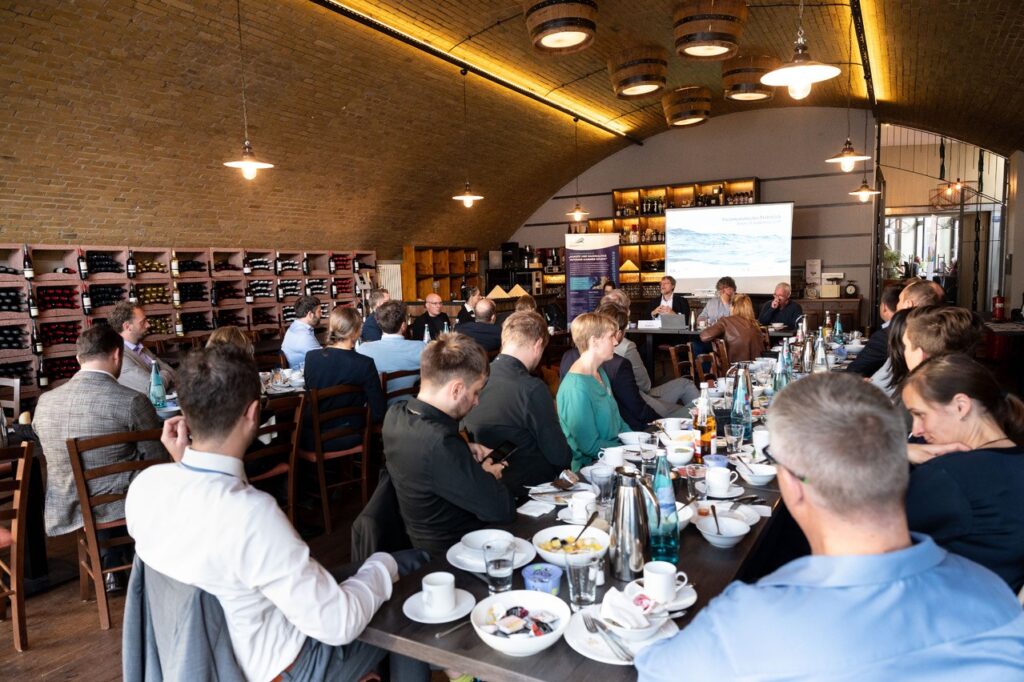
From offshore wind to biodiversity and fisheries: mega- or multi-use of the oceans?
Parliamentary breakfast concerning the DAM research mission sustainMare shows first scientific results - a basis for political decisions
“The sea and the coast are natural spaces with a unique biodiversity, that’s harnessed for food production and ressources, recreational uses, transport and production of energy – and that’s exactly why they are areas of social conflict. Conflicts of interest can therefore only be resolved through the interaction of all stakeholders,” that’s the summary of the academic community at the Parliamentary Breakfast on September 28 in Berlin.
This Parliamentary Breakfast focused on the global question “From offshore wind to biodiversity and fisheries: mega- or multi-use of the oceans?”. It was organized by the German Marine Research Alliance (DAM), the DAM research mission sustainMare and the German Federal Ministry of Education and Research (BMBF) to take up current developments in the field of energy usage, marine environment and policies and bring together members of parliament as well as other stakeholder. An involving discussion centered around upcoming economic and ecological challenges as well as the links between these developments.
Parliamentary Breakfast: Pressure on Fisheries and Marine Biodiversity
Scientific insights about offshore wind, biodiversity and fisheries were provided by Dr. Andreas Kannen, Helmholtz Center Hereon, Prof. Dr. Helmut Hillebrand, Helmholtz Institute for Functional Marine Biodiversity at Carl von Ossietzky University Oldenburg and Dr. Ralf Döring, Institute of Sea Fisheries at the Johann Heinrich von Thünen Institute. They formulated concerns and assessments of the pending expansion of offshore wind energy to 70 gigawatts by 2045 in the North and Baltic Seas as part of the EU’s Green Deal, the German Climate Protection Act and the Wind Energy at Sea Act.
This might however increase pressure on fisheries as well as marine and coastal biodiversity and requires adjustments. “We conduct research to make the impacts of offshore wind farms in dimensions as planned understandable – as a basis for informed decisions in politics,” Andreas Kannen explained.
Declining biodiversity in the East and North Seas
Experts addressed the ongoing Fact Check Biodiversity, a research initiative funded by the BMBF to assess and evaluate biodiversity in Germany. About 140 participating authors assess that the development of biodiversity in and around the German seas shows significantly more negative than positive trends. In particular, the Baltic Sea, especially populations of macroalgae, invertebrates and fish are highly endangered. While there are some positive exceptions, such as bird population and diversity in the North Sea, the overall situation has not improved over time. “Biodiversity responds to local stressors such as fishing and pollution, but also to global climate change. Currently, we know little about how these cumulative influences interact. Biodiversity management therefore requires strategies at different levels, but currently suffers from massive implementation deficits,” explained Helmut Hillebrand.
He acknowledges that 40 percent of Germany’s coastal waters are already protected in some form, but with the exception of those national parks, there are (almost) no restrictions on use. “Therefore, many marine nature reserves do not compare positively with their surroundings. This is an area where policy makers and authorities need to make significant improvements.”
Challenges and Opportunities for Fisheries
At the same time, he says, a transformation of the fisheries sector is necessary due to reduced land availability, a changing resource base and increasing demands from species and biotope protection: “Fisheries should be able to become more flexible in terms of species and fishing gear,” says Ralf Döring. “This also means that more adapted fishing techniques with lower environmental impact and the co-use of wind farm areas could create opportunities for fisheries.”
However, fishing cannot achieve such a transformation process on its own. It requires support: In addition to financial support, more favorable legal framework conditions, fewer cost-increasing requirements and a more positive public perception are crucial. After all, for there to be a fishery in the future, a broad consensus in society about sustainable management is needed, Döring concluded.
Background
German Marine Research Alliance (DAM)
The German Marine Research Alliance (DAM) consists of 24 leading German marine research institutions and aims to promote sustainable management of coasts, seas and oceans through research and transfer, data management, digitalization, and coordination of infrastructures. Together the DAM and its member institutions develop solutions-based knowledge and provide courses of action for politics, industry and civil society. It is funded by the federal government and the northern German states of Bremen, Hamburg, Mecklenburg-Western Pomerania, Lower Saxony and Schleswig-Holstein. For more information visit the DAM Website.
sustainMare
The DAM research mission “Protection and Sustainable Use of Marine Areas” (sustainMare), funded by the BMBF and the northern German states, studies and assesses the ecological, economic, and societal impacts of exploitation and pollution of different marine environments, primarily in the German North Sea and Baltic Sea. The aim is to identify socially responsive options for use and protection measures for coastal and marine habitats. More about sustainMare.
Contact:
Prof. Dr. Corinna Schrum & Prof. Dr. Karen Helen Wiltshire
Spokeswomen of the DAM research mission sustainMare
+49 4152 87 1830/1833 (Corinna Schrum)
corinna.schrum@hereon.de
Header Picture: Anke Beims
Newsletter
Always up to date with the DAM newsletter. (German only)
